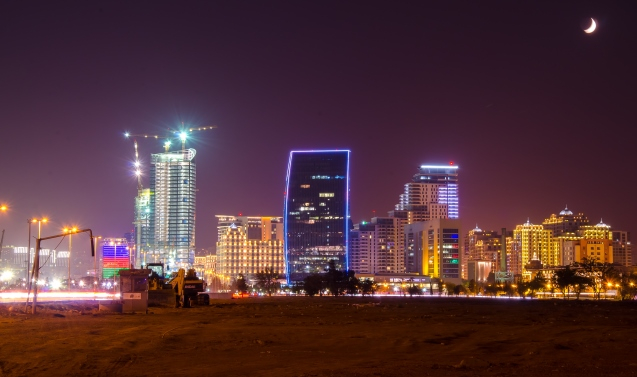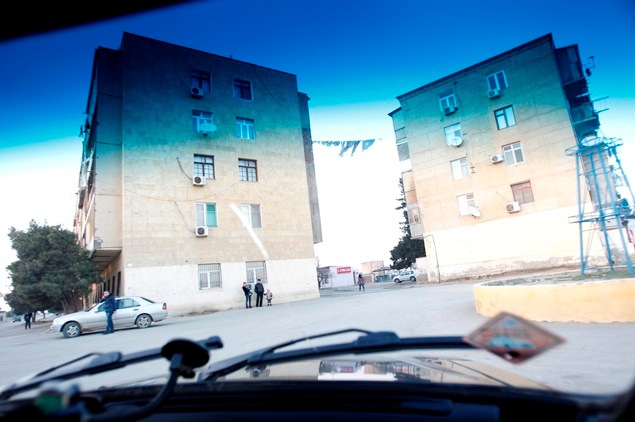Azerbaijan’s economy over the past two and a half decades has experienced a roller-coaster ride. After the nation’s independence from the former Soviet Union in 1991, it plunged into political crisis, rapid economic decline as well as war with Armenia. However, with the resurgence of the oil industry over the past 20 years, the country’s situation has improved.
Annual GDP growth rate has averaged 10 per cent over the past five years, almost fully attributable to oil income, which accounts for a big portion of Azerbaijan’s GDP. With all the oil money, real estate has started to be considered as a reliable investment instrument in order to preserve and increase capital and avoid the dangers of the country’s volatile currency.
“Following the construction boom earlier this decade, the Azerbaijani real estate market has undergone substantial change,” says Natik Mamedov, real estate expert at the Baku branch of multinational law firm Baker & McKenzie, in the recent report New Trends in Residential & Commercial Development.
“Residential development has consistently led the real estate market in the past, with 200, or more than half the construction companies registered in Azerbaijan, involved.”
Mamedov divides the market into three property types — those from the pre-boom period from the late 1990s through 2003, the construction boom from 2003 through 2007, and the post-boom period since then. The developments in these periods were subject to different legal frameworks, which is important for buyers and sellers to know.
The fall
With its economy so reliant on hydrocarbon exports, it’s no surprise that Azerbaijan has been shaken by falling oil prices and the fallout of Western sanctions against Russia. The central bank’s decision to depreciate the national currency, manat, by roughly 33 per cent against a basket of hard currencies earlier this year has also been met with concern in the real estate market.
Rashad Aliyev, real estate analyst at Baku-based consulting company Values and Sources, says prices in the secondary housing market in US dollar terms have decreased by more than 30 per cent over the past year and as per most pessimistic forecasts could drop a further 15 per cent unless oil prices stabilise soon. “[The slump in oil prices] has affected the whole economy,” he tells GN Focus. “Government expenditures have been reduced, revenues from abroad decreased.
“Low liquidity played a role. Also, flow of capital in the real estate market has dropped. This was due to the fact that many banks have restricted the allocation of loans in manat, which led to a shortage of funds.”
In turn, rental prices are expected to increase by 6 per cent this year, says Nusret Ibrahimov, General Director of Baku-based consulting firm MBA Group. The increase is good, but not as good as in previous years when rents climbed by 10 per cent and 12 per cent in 2013 and 2014, respectively, he claims in a research note by business intelligence firm ABC.AZ.
Getting back up
Aliyev says property prices in Baku currently average $1,612 (Dh5,921) per square metre. The highest prices for apartments are being observed in Sabail ($2,131 per square metre) and Yasamal ($1,661), areas which also have the highest appreciation potential, while the lowest prices are in Garadagh ($920), Absheron ($1,014) and Khazar ($1,034).
Meanwhile, the commercial market has expanded to include the development of premium hotels managed by global brand operators, warehousing facilities, shopping malls, mixed-use complexes and towers, infrastructure-related construction, as well as resort and entertainment development, which is also where investment opportunities in the commercial realty market are seen, says Mamedov.
> Regulations for foreigners
In Azerbaijan, like many other countries, foreigners can buy real estate but not land, which is reserved for citizens only. Thus, most purchases by foreigners are done on a freehold or leasehold basis. With regard to financing, only citizens of Azerbaijan have the right to purchase real estate by means of a mortgage or loan. Foreigners who acquire land through mortgage foreclosure or as a gift must sell it within a year.
Azerbaijan also allows ten-year leases, and foreigners can only own immovable properties affixed to the land. Property in Baku is naturally more expensive than in second-tier cities such as Ganja or Sumqayit. Popular districts for foreigners in the capital are Sabail and Yasamal, which also command the highest prices and are in the vicinity of Nizami Street, a central thoroughfare and one of the most expensive shopping streets in the world.
Most popular rental properties in Baku are apartments located near subway stations and universities such as Baku State University, Azerbaijan State University of Economics and Azerbaijan Technical University.









